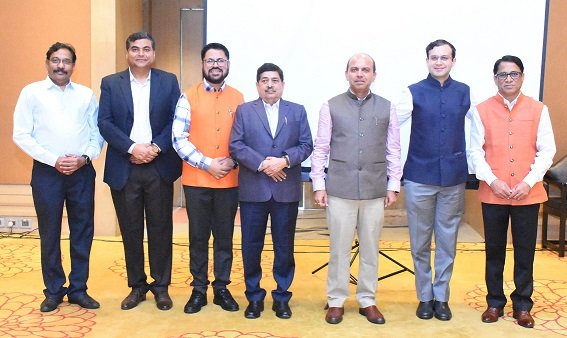Friday, 20 February 2026

The panel unequivocally echoed the need for the state governments to accelerate its process of setting up the required infrastructure and fast-track the land allotment for oil palm cultivation.
The Government of India under National Mission on Edible Oils-Oil Palm (NMEO-OP) has initiated a Mega Oil Plantation Drive from July 25 to August 5, 2023. To commemorate this initiative, a roundtable was organized in Guwahati. It witnessed participation from Godrej Agrovet Ltd, Indian Institute of Oil Palm Research, The Solvent Extractors’ Association of India and Solidaridad Network. The discussion revolved around the importance of oil palm cultivation for the Northeast and how it can uplift the farmers in the region.
The panel unequivocally echoed the need for the state governments in the region to accelerate its process of setting up the required infrastructure and fast-track the land allotment for oil palm cultivation thereby uplifting and prospering the farmers with small land holding.
“The NMEO-OP is a step in the right direction for the country. We thank the government for putting this in place and also taking special care of the Northeast States,” said Balram Singh Yadav, Managing Director, Godrej Agrovet Ltd, a leading diversified, Research & Development focused food and agri-business conglomerate.
He further added, “Our expertise of more than three decades in the oil palm business has enabled us to provide a variety of resources in addition to educating farmers on sustainable oil palm plantation processes. Our success in Andhra Pradesh and Telangana is a testimony of the same. That said, while the region’s unique topography poses immense challenge to us, we are confident of replicating our success in Assam and Arunachal Pradesh on the back of our capabilities. The same would not only uplift the farmers with small land parcels but also generate employment in the region.”
India is the world’s largest importer of Palm Oil and is the 2nd largest consumer of Palm Oil. With the local production of 300,000 tons, the country currently imports 7,500,000 tons.
Dr. B. V. Mehta, Executive Director, The Solvent Extractors’ Association of India highlighted the critical role of palm oil as an affordable cooking oil and a significant source of nutrition for millions of consumers. Despite its importance, our country faces a considerable gap between demand and supply, leading to the annual importation of approximately 140 Lakh Tonnes of various edible oils. This import expenditure amounts to a staggering Rs 120,000 Crores on palm and other oils.
“When ICAR-IIOPR and DA&FW carried out the assessment of oil palm potential areas during 2020, a total of 27.99 lakh ha was found suitable for oil palm cultivation in India, of which, 9.62 lakh ha has been identified in the Northeast States. Presently it is being cultivated in an area of 38,992 ha in NER, leaving much scope for expansion. ICAR-IIOPR is handholding oil palm development in NER through capacity building programmes, seed gardens, planting materials, demonstrations, supply of critical inputs, etc.” said Dr. K. Suresh, Director, ICAR-IIOPR.
Highlighting the sustainability aspect of Indian oil palm cultivation, Dr Suresh Motwani, Veg Oil Program Head – India, Solidaridad Network said “Studies have shown that palm oil is one of the most sustainable crops. By adopting sustainable practices, oil palm plantations can balance the demand for palm oil production with environmental and social responsibility, reducing their overall ecological footprint and contributing to a more sustainable future for farmers. To strengthen the production of palm oil in India the Indian Palm Oil Sustainability framework (IPOS) has been introduced to drive a positive change in the palm oil industry and contribute to more sustainable practices, benefiting the environment, local communities, and the Indian economy.”